- Home
- Robin Cook
Viral
Viral Read online
Titles by
Robin Cook
Genesis
Pandemic
Charlatans
Host
Cell
Nano
Death Benefit
Cure
Intervention
Foreign Body
Critical
Crisis
Marker
Seizure
Shock
Abduction
Vector
Toxin
Invasion
Chromosome 6
Contagion
Acceptable Risk
Fatal Cure
Terminal
Blindsight
Vital Signs
Harmful Intent
Mutation
Mortal Fear
Outbreak
Mindbend
Godplayer
Fever
Brain
Sphinx
Coma
The Year of the Intern
G. P. Putnam’s Sons
Publishers Since 1838
An imprint of Penguin Random House LLC
penguinrandomhouse.com
Copyright © 2021 by Robin Cook
Penguin supports copyright. Copyright fuels creativity, encourages diverse voices, promotes free speech, and creates a vibrant culture. Thank you for buying an authorized edition of this book and for complying with copyright laws by not reproducing, scanning, or distributing any part of it in any form without permission. You are supporting writers and allowing Penguin to continue to publish books for every reader.
Library of Congress Cataloging-in-Publication Data
Names: Cook, Robin, author.
Title: Viral / Robin Cook.
Description: New York : G. P. Putnam’s Sons, 2021.
Identifiers: LCCN 2021021034 (print) | LCCN 2021021035 (ebook) | ISBN 9780593328293 (hardcover) | ISBN 9780593328309 (ebook)
Subjects: GSAFD: Suspense fiction.
Classification: LCC PS3553.O5545 V57 2021 (print) | LCC PS3553.O5545 (ebook) | DDC 813/.54—dc23
LC record available at https://lccn.loc.gov/2021021034
LC ebook record available at https://lccn.loc.gov/2021021035
p. cm.
Cover design: Eric Fuentecilla
Cover images: Shutterstock
Book design by Katy Riegel, adapted for ebook by Maggie Hunt
This is a work of fiction. Names, characters, places, and incidents either are the product of the author’s imagination or are used fictitiously, and any resemblance to actual persons, living or dead, businesses, companies, events, or locales is entirely coincidental.
pid_prh_5.7.1_c0_r0
This book is dedicated to the fervent hope that members of the US Congress will comprehend the need to enact, at the very minimum, a viable public healthcare option.
CONTENTS
Cover
Titles by Robin Cook
Title Page
Copyright
Dedication
Preface
Prologue
Book 1
Chapter 1
Chapter 2
Chapter 3
Chapter 4
Chapter 5
Chapter 6
Chapter 7
Chapter 8
Chapter 9
Chapter 10
Chapter 11
Chapter 12
Chapter 13
Chapter 14
Book 2
Chapter 15
Chapter 16
Chapter 17
Chapter 18
Chapter 19
Chapter 20
Chapter 21
Chapter 22
Chapter 23
Chapter 24
Chapter 25
Chapter 26
Chapter 27
Chapter 28
Chapter 29
Chapter 30
Chapter 31
Chapter 32
Chapter 33
Chapter 34
Book 3
Chapter 35
Chapter 36
Chapter 37
Epilogue
Acknowledgments
Annotated Bibliography
About the Author
PREFACE
The Covid-19 pandemic has thrust the virus center stage as a dangerous and dreaded foe similar to the way the influenza pandemic did a century ago. The causative viruses, SARS-CoV-2 and influenza A(H1N1), produce respiratory illnesses that are easily transmittable person to person and thereby quickly swept around the globe. Within months, both scourges sickened millions of people, and many died.
Although these two biologic entities currently dominate the spotlight, there are other viruses that deserve equal fear, concern, and attention, since some of the resultant diseases have a higher lethality as well as the capacity to cause more serious complications. Although these diseases are not transmitted by aerosol and are thereby less communicative, they, too, are spreading around the world at a slower—yet ever-quickening—pace thanks to climate change and human encroachment into previously isolated environments. In particular, a number of viruses have cleverly hijacked the mosquito to ensure their survival. These viruses are responsible for illnesses such as yellow fever, dengue, West Nile fever, and an array of diseases that cause dangerous inflammation of the brain called encephalitis. This includes eastern equine encephalitis virus, or EEE, which is known to have a death rate as high as thirty percent. As climate change advances, aggressive mosquitoes like the Aedes Asian tiger mosquito, which carry these dangerous viruses and which had heretofore been restricted to tropical climes, are progressively and relentlessly spreading northward into temperate regions, currently reaching as far north as the state of Maine in the USA and the Netherlands in Europe.
These other, fearful viruses couldn’t have picked a better vector. As obligate bloodsuckers to enable breeding, mosquitoes are high on everyone’s nuisance list. Most people can recall a disrupted summer slumber, or evening stroll, or hike in the woods, or barbecue on the beach, heralded by the characteristic whine of the female mosquito. As a creature superbly designed after almost one hundred million years of adaptive evolution (even dinosaurs were plagued by mosquitoes), the female mosquito invariably gets her blood meal or dies trying. For some reason that has yet to be explained, the female Asian tiger mosquito is particularly attracted to human females with blood type O, although other blood types or even human males will do in a pinch.
As a testament to the effectiveness of the mosquito–pathogen partnership, almost a million people die each year from a mosquito-spread illness. Some naturalists even posit that mosquito-transmitted illnesses have killed nearly half of all the humans who have ever lived.
—Robin Cook, MD
PROLOGUE
Although mosquitoes cause more than two thousand human deaths every day, their pernicious impact doesn’t necessarily stop there. The deaths they cause can result in further serious societal complications. Such a story of a sad serial tragedy started in the summer of 2020 as the result of a cascading series of events that began in the idyllic town of Wellfleet, Massachusetts, nestled on the bay side of Cape Cod. It all started within the confines of a discarded automobile tire leaning up against a dilapidated, freestanding garage. Inside the tire was a bit of stagnant rainwater where a pregnant female Asian tiger mosquito had deposited her raft of eggs.
On the twentieth of July this clutch of eggs hatched,
starting the mind-boggling ten-day metamorphosis from larvae to pupae to adults. The moment the mosquitoes emerged as adults, they could fly, and within three days they followed the irresistible urge to reproduce, requiring the females to obtain a blood meal. By using their highly evolved sense organs, they detected a victim and zeroed in on an unsuspecting blue jay. Unknown to the mosquitoes and to the blue jay, the bird had been infected earlier in July by the eastern equine encephalitis virus. Neither bird nor the mosquitoes cared since birds such as blue jays are a normal host for EEE, meaning they live together in a kind of passive parasitism, and in a similar fashion, the mosquito’s immune system keeps the virus at bay. After getting their fill of blue jay blood, the mosquitoes flew off to find an appropriate place to deposit their eggs.
Several weeks later the infected band of mosquitoes had moved eastward toward the Atlantic Ocean. They were now considerably reduced in number from having been prey to numerous predators. At the same time, they were now more experienced. They had learned to favor human victims as easier targets than feathered birds or furred mammals. They also learned the beach was a promising destination in the late-afternoon/early-evening because there were always relatively immobile humans with lots of exposed skin.
At three-thirty on the afternoon of August fifteenth, this cluster of EEE-carrying female Asian tiger mosquitoes awakened from their daytime slumber. They had found refuge from the midday summer sun beneath the porch planking of a building on Gull Pond. A few moments later, ravenous for a blood meal, the swarm became airborne en masse with their characteristic whine. Save for several unlucky individuals, they avoided the many sticky and dangerous spiderwebs and emerged into the sunlight. Regrouping, they set off like a miniature fighter squadron. Instinctively they knew the beach was six hundred yards to the east beyond a forest composed mostly of black oak and pitch pine. Barring being eaten on the way or having to navigate a stronger than usual headwind, it would take the swarm around three-quarters of an hour to reach a crowd of potential targets.
BOOK 1
CHAPTER 1
August 15
Okay, you guys! It’s four-thirty and time to get this barbecue show on the road,” Brian Yves Murphy ordered, clapping his hands to get his family’s attention. His wife, Emma, and his daughter, Juliette, were draped over the living room furniture in the modest two-bedroom cottage they had rented for two weeks across from a hardscrabble beach in Wellfleet, Massachusetts, just beyond the town’s harbor. All of them were appropriately exhausted after an active, fun-filled midsummer day that marked the beginning of their final week of vacation. Because of the SARS-CoV-2 pandemic, they’d opted for a road trip vacation rather than flying down to Florida to use Emma’s parents’ empty condo, as was their usual summer getaway.
“Can’t we just recover for ten to fifteen minutes?” Emma pleaded jokingly despite knowing full well that Brian wouldn’t hear of it. In truth, she was as compulsive as he in terms of getting the most out of every minute of their vacation while the weather held. On top of that, she was also as compulsively fit and active as he. That morning she had awakened just after dawn and had soundlessly slipped out of the house for a bike ride and to be first in line at PB Boulangerie for their one-of-a-kind, freshly baked almond croissants. It had been a welcome surprise when they discovered the French bakery so far from what they called civilization. As lifelong residents of Inwood, Manhattan, they considered themselves quintessential New Yorkers and assumed anything outside of the city was hinterland.
“Sorry, but no rest for the weary,” he said. “I’d like to get to the Newcomb Hollow Beach parking lot before the evening rush to make sure we get a spot.” They had found over their first few days that Newcomb Hollow was their favorite Atlantic-side beach, with fewer people and high dunes that acted as partial windbreaks from the onshore breeze.
“But why the rush?” questioned Emma. “We already got a beach parking permit when we got the fire permit.”
“The parking permit lets us park, but it doesn’t guarantee a spot. Plus, Newcomb Hollow Beach is a popular spot for obvious reasons.”
“Okay,” she said agreeably. She got up and stretched her shoulders, which were mildly sore from the kayaking on Long Pond they had done that morning, an unusual workout for both of them. Then in the early afternoon she and Brian had done their daily mini-triathlon that involved biking ten miles to Truro and back, swimming for one mile in the bay, and running for five more into the Cape Cod National Seashore. Meanwhile, four-year-old Juliette had spent time with a local high school girl named Becky whom they had luckily found to serve as a daily sitter on day one. The lucky part was that Becky, despite being a teenager, was surprisingly acceptive and attentive to the required testing, mask wearing, and social distancing mandated by the Covid-19 pandemic.
“I’ll get towels, the grill, briquettes, beach chairs, and toys and load it all in the car,” he rattled off, heading into the kitchen. He’d been looking forward to the barbecue for several days. Although they wouldn’t have the sunset like they did every evening over Cape Cod Bay, the Atlantic side was glorious, especially compared to the narrow, seashell-littered beach in front of their cottage.
“Ten four,” Emma said. She glanced down at Juliette. The child seemed to already be asleep, although Emma was aware she could be pretending, as she often did when she didn’t want to be bothered. With her eyes closed and lips slightly parted, she was clutching her favorite toy and constant companion named Bunny: a foot-long, very floppy, light brown, worse-for-wear stuffed rabbit with one missing eye. Emma couldn’t help but stare at her with loving eyes, thinking as a mother that Juliette might very well be the world’s most beautiful child, with her slightly upturned sculpted nose, Cupid’s bow lips, and thick blond hair.
Initially both she and Brian had been taken aback by their daughter’s hair as it grew in. The expectation had been that it would either be Emma’s flaming red or Brian’s blue-black. Instead it had come in as blond as golden corn, establishing from the outset that Juliette was her own person. The same thing happened with her eye coloration. She ended up green-eyed in contrast to Emma’s hazel and Brian’s blue. But there were some definite commonalities. All three Murphys had pale, almost translucent, Irish skin that required constant application of sunscreen to keep from getting burned. Also similar were their well-muscled and long-limbed figures. Even at age four, Juliette promised to be as athletic and tall as both her father and mother, who stood at six-one and five-eight, respectively.
“Hey! What are you doing?” he questioned as he wheeled a small portable kettle charcoal grill through the living room. He’d caught her hovering over Juliette. “Chop chop! What’s holding up the show?”
“I was just momentarily overwhelmed by our daughter,” Emma confessed. “We are so lucky she’s healthy and so damn cute. In fact, I think she might be the most beautiful child in the world.”
Brian nodded but rolled his eyes playfully. “Sounds like a serious case of parental bias. There’s no doubt we’re lucky, but let’s please hold up on our appreciation until we’ve parked and are on the beach.”
She threw the Speedo swim cap she was holding at Brian, who laughed and easily ducked away before pushing out into the front yard, letting the screen door bang behind him. The characteristic noise reminded Emma of the summers she’d spent as a child out on Long Island. Her father, Ryan O’Brien, had done very well for himself and his family after starting a successful plumbing company in Inwood. Emma and Brian had both grown up among Inwood’s sizable Irish community and had actually been aware of each other as grammar school–aged children while attending PS 98 even though he was two grades ahead of her.
For her part in preparation for the barbecue, she went into the kitchen, got out the cooler, and after putting in the cold packs from the freezer, filled it with the hamburger patties she’d made the previous day, the fresh de-gritted clams they had gotten earlier that morning at the harbor, a bottl
e of prosecco, and some fruit juice for Juliette. The unhusked summer corn was in a separate shopping bag, as were the mille-feuille from the bakery.
A half hour later the family was in their Outback Subaru, heading east toward the Cape Cod National Seashore preserve. Juliette was buckled into her car seat next to the cooler, an inflatable boogie board, and three folded beach chairs. As per usual Juliette was holding on to Bunny while watching a cartoon on a screen built into the driver’s-side headrest. At Juliette’s feet were the rest of the beach toys, including pails, sand molds, shovels, and a pair of Kadima paddles.
After crossing Route 6, both Brian and Emma eyed the Wellfleet Police Department as it came into view. The building was a quaint, gable-roofed white clapboard structure with dormers that looked more like a country inn than a police department.
“I can’t help but wonder what it would be like being a police officer way out here in the middle of nowhere,” she observed. She turned to get a final glimpse of the picturesque building with a split log fence defining a visitor’s parking area. There was not a squad car in sight.
“It is hard to imagine,” he said with an agreeing nod. He’d had the same thought simultaneous with Emma verbalizing it. This was a frequent occurrence, and they attributed it to how closely their lives had coincided. Not only had they grown up several blocks apart in the same neighborhood in Manhattan and gone to the same grammar school, but they had both ended up majoring in criminal justice in college, with Brian attending Adelphi on Long Island and Emma going to Fordham in the Bronx. Although they also had gone to different high schools, their transcripts were remarkably similar. Both had done well academically, and had been very active in athletics in high school and college. For Brian it was soccer, wrestling, and baseball, and for Emma it was field hockey, basketball, and softball.
“Compared to our law enforcement experiences, it must be incredibly boring,” she said as she faced around to look out the windshield. Both she and Brian had matriculated directly into the New York Police Department Academy after college, serving as patrol officers at very busy NYC precincts. After five years of exemplary service, they had been accepted into the elite and prestigious NYPD Emergency Service Unit. It had been when Emma was a cadet at the ESU Academy that their remarkably parallel lives temporally aligned. Brian, who was a member of the ESU A team, volunteered on his days off to help the ESU Academy instructors. It was his way of staying up to date and in shape, and his reward was meeting one of the few female ESU cadets, falling in love, and gaining a wife.

 Shock
Shock Mutation
Mutation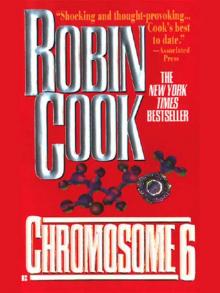 Chromosome 6
Chromosome 6 Brain
Brain Intervention
Intervention Invasion
Invasion The Legend of Parzival: The Epic Story of His Quest for the Grail
The Legend of Parzival: The Epic Story of His Quest for the Grail Acceptable Risk
Acceptable Risk Cell
Cell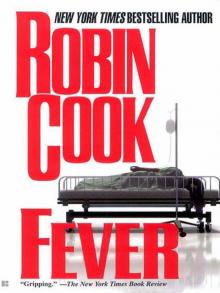 Fever
Fever Death Benefit
Death Benefit Contagion
Contagion Mindbend
Mindbend Coma
Coma Vital Signs
Vital Signs Harmful Intent
Harmful Intent Critical
Critical Foreign Body
Foreign Body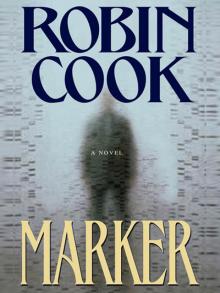 Marker
Marker Blindsight
Blindsight Terminal
Terminal Sphinx
Sphinx Fatal Cure
Fatal Cure Host
Host Charlatans
Charlatans Crisis
Crisis Vector
Vector Toxin
Toxin Abduction
Abduction Viral
Viral Pandemic
Pandemic Outbreak
Outbreak Vector js&lm-4
Vector js&lm-4 Godplayer
Godplayer A Brain
A Brain Year of the Intern
Year of the Intern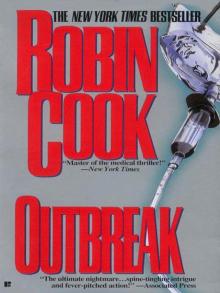 Outbreak dmb-1
Outbreak dmb-1 Cure
Cure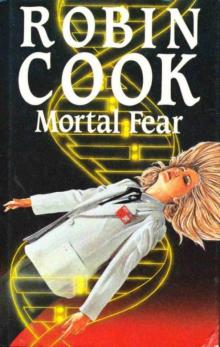 Mortal Fear
Mortal Fear The Legend of Parzival
The Legend of Parzival Vital Signs dmb-2
Vital Signs dmb-2 Cure (2010) sam-10
Cure (2010) sam-10 Blindsight sam-1
Blindsight sam-1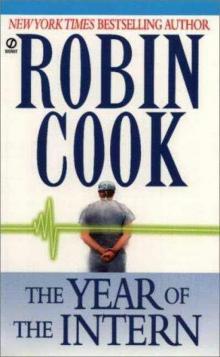 The Year of the Intern
The Year of the Intern Intervention sam-9
Intervention sam-9 Foreign Body sam-8
Foreign Body sam-8